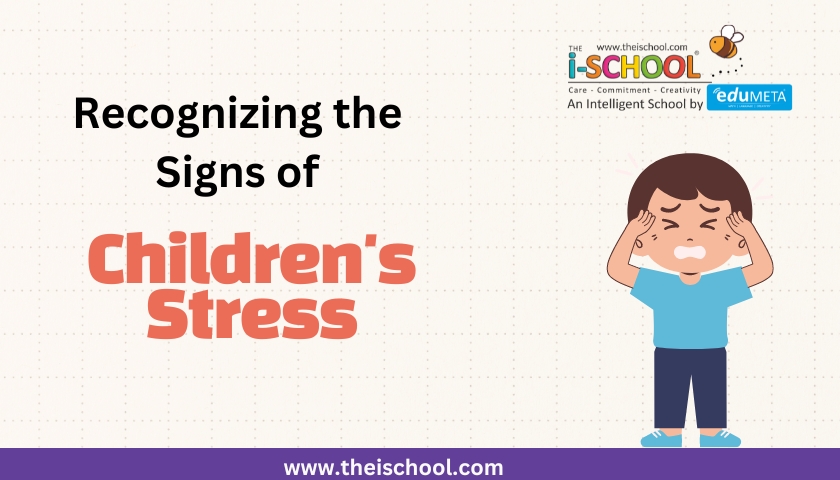Recognizing the Signs of Children’s Stress

Children, like adults, can experience stress, but they often express it differently. Recognizing the signs of children’s stress is crucial for parents, caregivers, and educators to provide the necessary support and interventions. Understanding these signs can help in addressing the underlying issues and promoting a child’s emotional well-being. Here are some key signs of stress in children and how to recognize them.
1. Changes in Behavior
Increased Irritability: If your child is more irritable, easily frustrated, or prone to outbursts, it could be a sign of stress. Pay attention to sudden changes in their mood and behavior.
Withdrawal: A stressed child may withdraw from family, friends, or activities they once enjoyed. They might prefer to spend time alone and seem less interested in social interactions.
Clinginess: Increased clinginess or a need for constant reassurance can indicate that your child is feeling stressed. They might seek more physical comfort and want to stay close to caregivers.
2. Physical Symptoms
Headaches and Stomachaches: Frequent headaches or stomachaches without a clear medical cause can be signs of stress. These physical symptoms often reflect the child’s emotional state.
Changes in Eating and Sleeping Patterns: Stress can disrupt a child’s eating and sleeping habits. They might experience changes in appetite, difficulty falling asleep, or frequent nightmares.
Fatigue: Excessive tiredness or lack of energy, even after adequate rest, can indicate that your child is dealing with stress.
3. Emotional Changes
Increased Anxiety: Signs of anxiety, such as excessive worrying, fearfulness, or nervousness, can be indicators of stress. Children might express concerns about school, friends, or family situations.
Sadness or Depression: Persistent sadness, tearfulness, or expressions of hopelessness can be signs of stress and should be taken seriously.
Mood Swings: Frequent mood swings or emotional ups and downs can indicate that your child is struggling to cope with stress.
4. Cognitive Symptoms
Difficulty Concentrating: Stress can impact a child’s ability to focus and concentrate. They might have trouble completing tasks, following instructions, or paying attention in school.
Forgetfulness: Increased forgetfulness or difficulty remembering things can be a sign that your child’s mind is preoccupied with stress.
Negative Self-Talk: Children under stress might engage in negative self-talk, expressing feelings of inadequacy or low self-esteem.
5. Behavioral Symptoms
Regression: Stressed children might exhibit regressive behaviors, such as bedwetting, thumb-sucking, or excessive tantrums, which they had previously outgrown.
Aggression: Increased aggression or acting out, such as hitting, kicking, or yelling, can be a way for children to express their stress and frustration.
Avoidance: Avoiding certain situations, people, or activities that they previously enjoyed can be a sign that your child is experiencing stress.
How to Help a Stressed Child
Open Communication: Encourage your child to talk about their feelings and listen to them without judgment. Let them know it’s okay to feel stressed and that you are there to support them.
Create a Calm Environment: Provide a stable and calm home environment where your child feels safe and secure. Routine and predictability can help reduce stress.
Encourage Healthy Habits: Promote healthy eating, regular physical activity, and adequate sleep. These habits can help manage stress and improve overall well-being.
Teach Coping Strategies: Help your child develop healthy coping strategies, such as deep breathing exercises, mindfulness, and engaging in hobbies they enjoy.
Seek Professional Help: If your child’s stress is severe or persistent, consider seeking help from a child psychologist or counselor. Professional support can provide additional tools and strategies to manage stress effectively.
Conclusion
Recognizing the signs of children’s stress is essential for providing timely support and interventions. By being attentive to changes in behavior, physical symptoms, emotional changes, cognitive symptoms, and behavioral signs, parents and caregivers can help children navigate stress and promote their emotional well-being. At eduMETA THE i-SCHOOL, we are committed to supporting children’s overall development and providing resources to help parents recognize and address stress in their children
